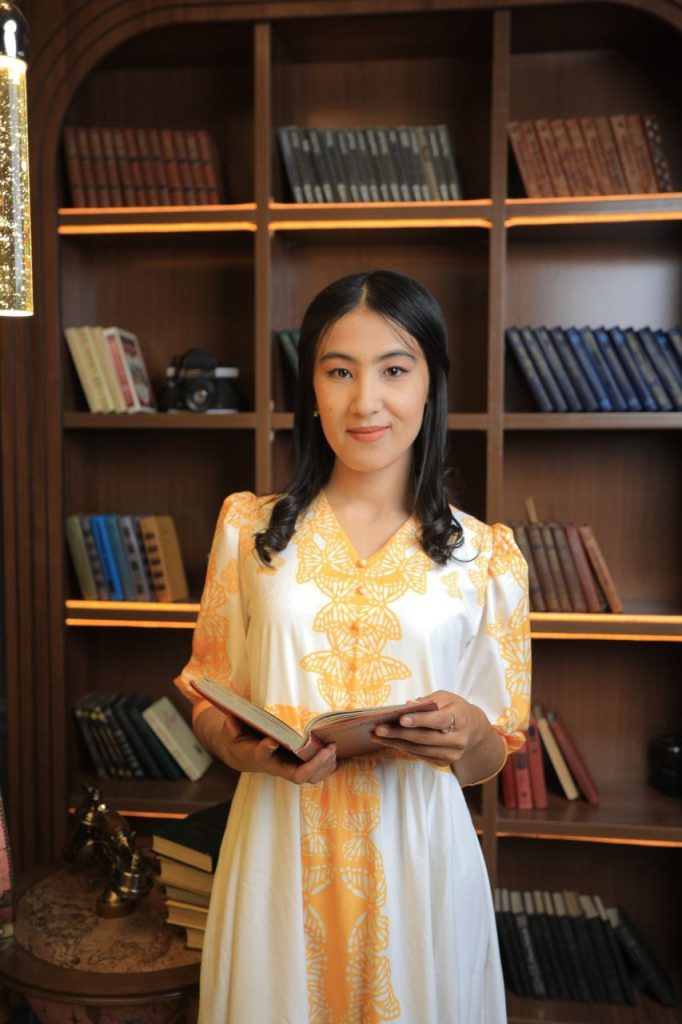
The Educational Significance of Uzbek Folk Tales
Annotation:
Uzbek folk oral literature, with its vast scope and ancient history, continues to inspire many researchers today. Among the genres of this creative tradition, the folk tale occupies a special place, reflecting the people’s historical experience, love for children, and worldview. Through tales, concepts such as good and evil, diligence and laziness, honesty and deceit are conveyed to children in an easy and comprehensible way. The main purpose is to enhance their educational and moral significance. This article analyzes the nature of Uzbek folk tales and their role in children’s upbringing and education.
Keywords: Uzbek folk tales, educational significance, moral value, characterization, spiritual upbringing, ethical values.
The Uzbek people have long been known for their love and care for children. Therefore, the genre of the fairy tale, which plays an important role in child upbringing, holds a significant place in Uzbek oral literature. Uzbek folk tales, with their rich culture and traditions, are not only entertaining stories but also an important source of education and moral development. Passed down from generation to generation, these tales teach children life lessons, moral values, and social culture. Thus, folk tales serve not only as entertainment but also as an essential educational and moral tool.
Folk tales reflect the culture, spiritual worldview, and traditions of the Uzbek people. Through them, children learn about their nation’s history, customs, and values, and grow up in that spirit. For example, in the tale Alpomish, the ideas of heroism, bravery, and patriotism are instilled in children, fostering national pride and a spirit of selflessness.
Tales not only broaden children’s imagination but also develop their creative thinking skills. Filled with fantastic events, interesting characters, and unique worlds, they help children generate new ideas and enhance their creativity. This plays an important role in nurturing imaginative and inventive individuals in the future.
In conclusion, Uzbek folk tales are not just entertaining stories for children but also an essential genre that plays a key role in their upbringing. They help children learn moral culture and traditions, develop imagination and creativity, and acquire social skills. Therefore, reading and learning from folk tales is of great importance for every child.
References:
1. Uzbek Folk Tales, two-volume collection. Compiled by M.I. Afzalov, H. Rasulov, Z. Husainova. Tashkent: G‘afur G‘ulom Literature and Art Publishing House, 1995–1996.
2. Golden Cradle. Tales. Prepared for publication by M. Afzalov, K. Imomov. Tashkent: G‘afur G‘ulom Literature and Art Publishing House, 1985.
3. Afzalov, M. About Uzbek Folk Tales. Tashkent: Fan, 1964.
4. Jalolov, G‘. The Poetics of Uzbek Folk Tales. Tashkent: Fan, 1976.
Rahmataliyeva Aidakhon Umidjon qizi was born on July 10, 2003, in Pop District, Namangan Region. She graduated from Secondary School No. 32 in her district and later completed her studies at the Faculty of Philology of Namangan State University. Aida has participated in various events organized by the Youth Affairs Agency, as well as in Zakovat intellectual competitions, and has been awarded several certificates. Her goal is to demonstrate her knowledge on the international stage and become a true professional in her field.
